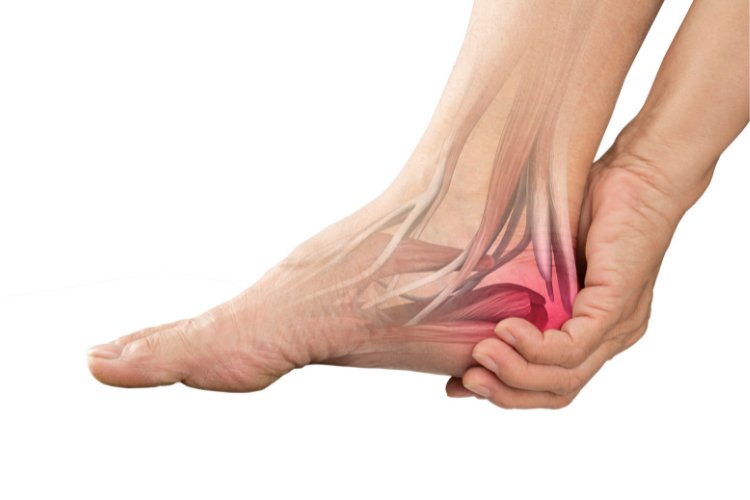HEEL PAIN
What Causes Heel Pain?
Heel pain is a burden, no matter how often you suffer from it, however persistent heel pain can be a real nightmare to livve with daty after day. Heels can become painful for a variety of reasons including:
Conditions such as bursitis, plantar fasciitis, heel spurs, tendonitis, apophysitis, baxters nerve entrapment & enthesopathy etc can all cause heel pain.
Heel pain can range from a slight pain which causes mild discomfort, to absolute agony where walking is not possible. Often the worse time is at the end of the day or first thing in the morning, pain on the affected foot can be intense for a while then may settle slightly after a couple of steps.
It is important that if after following the self help steps below and the condition doesn't settle down that you come and see a Podiatrist to help diagnose and treat your foot pain.
If required, an ultrasound can be used to help diagnose and monitor the condition. We can also use it in any guided injections should we wish to do so.
Ultrasound
Heel Pain Treatment
At Walsh Podiatry we take a 6 steps treatment program. Simply by starting at the 1st stage and progressing on if the condition doesn’t resolve. However, most people don’t get past the 2nd stage as it nearly always clears up when we examine the way the foot functions in gait. We aim to treat chronic heel pain for the affected foot and prevent all future heel pain. The treatment for this condition is;
Simple exercises and footwear changes. Calf stretching is good for this as often it is associated with a tight calf muscle. Good supportive footwear is essential, not too rigid a heel but the main thing is supportive, i.e lace up shoes / boots that provide a good level of support to the foot arch. Sandals do not particularly provide good foot support, although the vionic sandals can be a good compromise. If you are suffering from a heel spur, you could also try using a heel pad to ease pain of the spur while wearing shoes.
Biomechanical assessment and prescription of insoles to improve the foot function (This is to see how your feet function when you walk. We use video gait and pressure analysis to show in detail how your feet are functioning. Then from this we make insoles or orthotics to help them function better). Because everyone walks very differently there is no one size fits all solution and to assess each person’s gait ensure the best treatment.
FMT Treatment - Foot Mobilisation Treatment to free up soft tissue restrictions which are holding the foot in a poor position. A course of treatment over 6 weeks with a 3 week review to mobilise and adjust the joints and structures within the foot so they are able to function more efficiently.
Laser Treatment - This can be recommended for some patients instead of foot mobilisation or it can stand alone as a treatment for this condition.
Cortisone Injection - This can be done with ultrasound guided local anaesthetic helping reduce the pain of the injection. It can be a very effective way of quickly reducing the inflammation in the area.
Other treatments can be used on persistent cases if necessary.
Because we are all different in terms of how we walk one solution doesn’t always work for everyone. There are many products out there, which provide general support to our feet. These will claim to cure heel pain and correct your gait and in some people the pain may resolve.
However more often than not we find a more specific approach is better. Doing a biomechanical assessment allows us to determine the specific issues causing the problem and we can then treat you specifically using exercises, rehabilitation, footwear, orthotics, functional insoles, foot mobilisation therapy, and if necessary a cortisone injection.
Why Book with us?
At Walsh Podiatry we take each person as an individual and decide what is causing your heel pain. Our experience has taught us that this issue doesnt respond to generic advice everytime. Some treatments work for some and not for others but to know what will work for you we must first understand you and what if causing your heel pain. We have to understand your foot function from what you do with your feet daily to how the bones, muscles and tendons in and around you foot and leg function every step.
We understand that sometimes we have to get the condition to start healing by reducing inflammation quickly, and sometimes a steroid injection can really help with that. We use ultrasound regularly to help us measure and monitor how inflammed the plantar fascia is and respond to that. Underlying it all we understand that treatment has to be broken in to two parts;
Treat the symptom
Treat the cause
Without addressing both of these areas the whole treatment can fail.
Book now for your assessment.
Contact us.
329 Chester Road, Castle Bromwich
Birmingham B36 0JG





